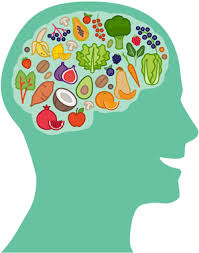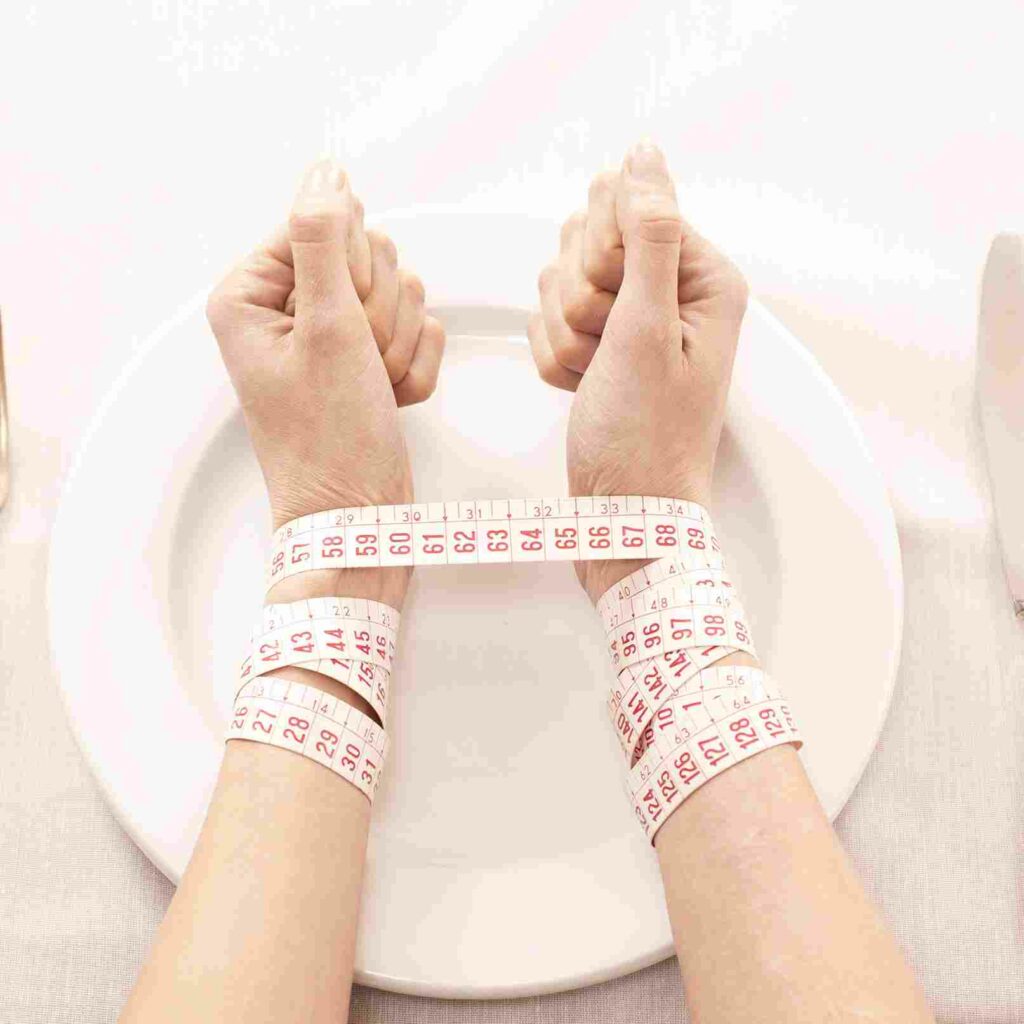Did you know that hair loss is a common side effect of anorexia nervosa? In fact, it’s one of the most visible signs that someone is struggling with the disorder. Unfortunately, many people don’t know much about hair loss and anorexia, and they don’t realize how serious the problem can be. In this blog post, we will discuss the relationship between hair loss and anorexia nervosa. We will also provide information on how to get help if you or someone you know is struggling with this issue.
Contents
Defining Anorexia

Anorexia is an eating disorder characterized by abnormally low body weight, intense fear of gaining weight, and a strong desire to be thin.
People with anorexia typically restrict the number of calories they eat and engage in excessive exercise. The disorder is life-threatening and can lead to severe health complications, including malnutrition, organ damage, and death.
Anorexia is a serious mental illness that requires professional treatment. If you or someone you know has anorexia, seek help from a qualified healthcare provider.
The Link Between Hair Loss And Anorexia
Hair loss and anorexia are often thought of as two separate issues, but there is a strong link between the two. People with anorexia are at a higher risk for hair loss because of the severe malnutrition that comes with the disorder. When your body isn’t getting the nutrients it needs, your hair is one of the first things to suffer.
If you or someone you know is struggling with anorexia, it’s important to get help as soon as possible. The sooner treatment is started, the better the chances are for a full recovery. If you’re concerned about hair loss, talk to your doctor or a qualified hair loss specialist
Does Anorexia Affect Hair?

Anorexia nervosa is an eating disorder that can have a number of physical consequences, including hair loss. While the exact cause of hair loss in people with anorexia is not fully understood, it is thought to be due to a combination of factors, including malnutrition and hormonal changes.
Hair loss can be a distressing symptom of anorexia, but it is important to remember that it is only one aspect of the disorder. Anorexia is a serious mental illness that requires professional treatment. If you or someone you know is struggling with anorexia, please seek help from a qualified healthcare provider.
While hair loss may be a visible sign of anorexia, it is important to remember that the disorder is much more than just a physical condition. Anorexia is a serious mental illness that can have a profound effect on a person’s life.
What Are The Symptoms Of Anorexia Hair Loss?
There are a few key symptoms to look out for when it comes to anorexia hair loss.
- Firstly, you may notice that your hair is thinning or falling out in patches.
- Secondly, your hair may become brittle and dry, and you may also experience excessive shedding.
- Thirdly, your scalp may become very sensitive and you may develop dandruff.
- Fourthly, you may start to experience hair loss in other parts of your body, such as your eyelashes or pubic hair, and hair follicles shrink.
If you are experiencing any of these symptoms, it is important to see a doctor as soon as possible. Hair loss can be a sign of an underlying health condition, so it is important to get checked out by a medical professional.
Side Effects Of Anorexia
There are several side effects associated with anorexia, and hair loss is one of the most common. When someone suffering from anorexia drastically reduces their calorie intake, their body starts to shut down non-essential functions to conserve energy. This can cause hair loss, as well as several other problems.
Anorexia can also cause problems with the nails and skin. Brittle nails and dry, yellowish skin are common side effects of the disorder. Anorexia can also lead to amenorrhea or the absence of menstrual periods. This is caused by the low levels of body fat associated with anorexia, which can disrupt hormone production.
Anorexia can grow hair on other parts of the body but causes hair loss on the head.
It is a serious mental disorder that can have several devastating side effects.
Lanugo is a type of soft, downy hair that commonly grows on the face and body of people suffering from anorexia.
Anorexia can also cause irregular heartbeats, low blood pressure, and slowed breathing. These effects are caused by the drastic weight loss associated with anorexia.
If you or someone you know is suffering from anorexia, it is important to seek professional help.
Causes
There are various causes of hair loss in anorexia nervosa including:
- A decrease in the production of keratin, a protein that makes up hair
- An imbalance of hormones that can affect hair growth
- Poor nutrition and inadequate calorie intake can lead to deficiencies in nutrients needed for healthy hair growth
- Increased stress levels due to the psychological effects of anorexia nervosa
- Anemia, which can cause hair loss by reducing the oxygen supply to the hair follicles
- Thyroid problems can disrupt the production of hormones needed for healthy hair growth.
Thus these are the root causes of anorexia nervosa-induced hair loss. Hair loss due to anorexia nervosa is often temporary and reversible with treatment. However, in some cases, hair loss may be permanent.
If you or someone you love is struggling with anorexia nervosa, it is important to seek professional help.
How Is It Treated?

There are various treatment options available for anorexia nervosa, and the most effective approach depends on the individual. Treatment typically involves a combination of psychological therapy, medical care, and nutritional counseling.
Therapy
Psychological therapy can help an individual identify and change negative thinking patterns and behaviors that contribute to anorexia. It can also help address underlying emotional issues that may be fueling the eating disorder.
Cognitive behavioral therapy (CBT) is one type of psychological therapy that has been shown to be effective in treating anorexia. CBT focuses on helping a person change harmful or unhealthy thoughts and behaviors.
Other types of therapy, such as interpersonal therapy and family therapy, may also be helpful in treating anorexia.
Family therapy: This type of therapy can help anorexia patients and their families better understand the eating disorder and its effects. It can also teach them how to support the patient during treatment.
Interpersonal therapy: Interpersonal therapy (IPT) is a type of short-term therapy that focuses on helping you understand and work through relationship issues. IPT has been found to be an effective treatment for eating disorders, depression, and anxiety disorders.
Medication
There is no medication specifically approved to treat anorexia. However, medications may be prescribed to help address certain symptoms or complications associated with the eating disorder.
For example, antidepressants may be prescribed to help treat depression or anxiety.
Medical care is important to monitor weight loss, heart health, and bone health. If you have anorexia, you should see a doctor or mental health professional for help.
You may also be referred to a registered dietitian, who can provide nutritional counseling and meal planning. A nutritionist may also be part of your treatment team.
In some cases, you may need to be hospitalized to ensure that you are getting the nutrition and calories your body needs.
Nutritional Counselling
A registered dietitian or nutritionist can teach you about healthy eating and provide support as you work to recover from your eating disorder. It includes working with you to develop a plan that meets your energy and nutrient needs. This may involve meal planning, education about nutrition, and developing healthy eating habits. It can be helpful to have someone supporting you who understands the complex relationship between food, body image, and self-esteem.
Counseling
Counseling can provide support and guidance if you’re struggling with an eating disorder. It can also be helpful to talk to someone who understands hair loss. A counselor can help you understand your thoughts and feelings, and develop coping strategies for dealing with hair loss.
Support groups
Another form of treatment for anorexia is support groups. These can provide a sense of community and understanding, as well as offer helpful coping and problem-solving strategies.
Oftentimes, family and friends play an important role in eating disorder recovery. They can provide support, love, and encouragement.
With help, you can overcome this disorder and develop a healthier relationship with food and your body.
Self-Help Tips For Anorexia and Hair loss
If you or someone you know is struggling with anorexia, it’s important to get help. This eating disorder can have a major impact on your health, including your hair. Here are some self-help tips for managing anorexia and hair loss.
Eating a balanced diet
First, make sure you’re getting enough calories and nutrients. This is important for your overall health, and it will help prevent hair loss. Make sure you’re eating a variety of foods, including plenty of fruits, vegetables, whole grains, lean proteins, and healthy fats. Eating a balanced diet is important for overall health, and that includes the health of your hair. Make sure you’re getting enough protein, iron, and other nutrients that are essential for healthy hair. An unhealthy diet can contribute to hair loss, so it’s important to eat right.
Stay Hydrated
Second, stay hydrated. Drinking plenty of water helps keep your hair healthy. It also helps flush out toxins that can contribute to hair loss. For example, taking in too much caffeine can lead to dehydration, which can then lead to hair loss. So make sure you’re drinking plenty of water every day.
Manage stress
Third, manage stress. Stress can impact your health in a number of ways, including causing hair loss. Try to find healthy ways to manage stress, such as exercise, meditation, or spending time with friends and family. For example, if you’re constantly worrying about your weight or body image, try to find other things to focus on, such as your hobbies or interests.
If you’re struggling with anorexia, these self-help tips can help you manage the condition and prevent hair loss. However, it’s important to get professional help if you’re unable to manage the disorder on your own. Anorexia is a serious condition that requires treatment from a qualified professional.
Conclusion
It may be concluded that anorexia hair loss is a real and serious problem. It is important to be aware of the potential for hair loss and to seek medical help if you think you may be experiencing it. While there is no cure for anorexia, treatment can help manage the condition and minimize its effects. If you are concerned about your hair loss, speak to your doctor or a professional specializing in eating disorders.
For further information and suggestions, please contact Therapy Mantra. We have a team of expert therapists and psychiatrists that can help you overcome this problem. Get in touch with us right away to learn more about our services. You may also make an online therapy session or download our free Android or iOS app.


